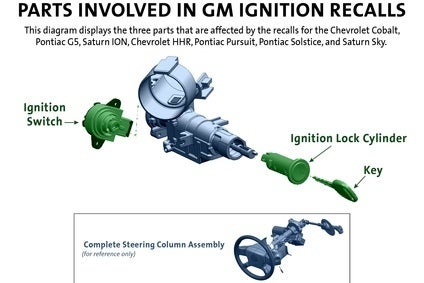
Poor relations in 2002 between General Motors and its 1999 spun-off, soon to be bankrupt, former parts unit Delphi may have contributed to substandard parts being supplied that are now the subject of a massive recall.
A Delphi heavily dependent on GM’s business having trouble attracting new customers and a GM looking for ways to cut costs to cover an ever-widening cost gap with its foreign competitors led to a squeeze on suppliers for pricing concessions that was a lot easier than addressing the automaker’s own inefficiencies and uncompetitive business model, the Detroit News said.
“They had Delphi over a barrel and they knew it. GM just went after them and put on all sorts of pressure to reduce costs,” John Henke, president of Planning Perspectives, which tracks relations between automakers and their suppliers, told the paper. “The two companies hated each other. If you were a Delphi engineer and you worked with GM, you didn’t want to get out of bed in the morning.”
Henke and other analysts believe the caustic relationship between General Motors and Delphi led to substandard parts being shipped by the supplier. And they told the paper the dysfunctional state of Detroit’s automobile industry in the years leading up to its near-death experience in 2008 and 2009 helps explain why GM would have accepted them and installed them on its vehicles.
Henke, who has rated supplier relations with automakers since 1992, told the paper that, f 2002 to 2007, GM was consistently rated the worst company to do business with in his annual survey.
“Relations with GM were definitely the most contentious,” he said. “They were so cost-oriented; price took precedence over quality. Suppliers were threatened with loss of business if they didn’t reduce the cost of their components. They had to be incredibly creative to meet GM targets.”
Such targets were set at their lowest for entry-level vehicles such as the Chevrolet Cobalt and Saturn Ion that are the focus of the current recall scandal.
The stress was becoming too much for Delphi to bear, David Cole, then chairman of the Center for Automotive Research, told the Detroit News.
“At that time, it was clear that they were in businesses they couldn’t afford to be in,” Cole said. “They had a similar cost structure to what they’d had as part of GM, but GM was not willing to continue to pay them as much for parts. They had to compete with other suppliers for business. There was a lot of tension.”
“Brutal” techniques used by GM to force parts prices down sometimes resulted in suppliers bidding so low that they had to cut corners to meet the promised price, the paper said. Henke claimed that was one reason why GM ended up receiving parts that did not meet its own specifications, as the company now said happened with the ignition switches from Delphi. And he said GM was willing to accept those parts because the alternative — delaying production — was too costly.
This was largely due to deals – swept away in post bankruptcy reforms – such as the infamous United Auto Workers’ ‘jobs banks’ that paid workers even if their factories were idled under union contracts.
“There were unquestionably times when parts were accepted that did not meet GM’s specifications. But you had to keep the production lines running at all costs,” Henke told the Detroit News.
Both Henke and Cole said that and other vestiges of those bad old days died along with the ‘Old GM’ after it filed for bankruptcy in 2009 and supplier relations were much better now.
Cole said: “Before, engineering wanted to buy on function, purchasing wanted to buy on price. Today, purchasing and engineering work much more closely together.”
Delphi went bankrupt in 2005 and did not emerge from Chapter 11 protection until October 2009.



